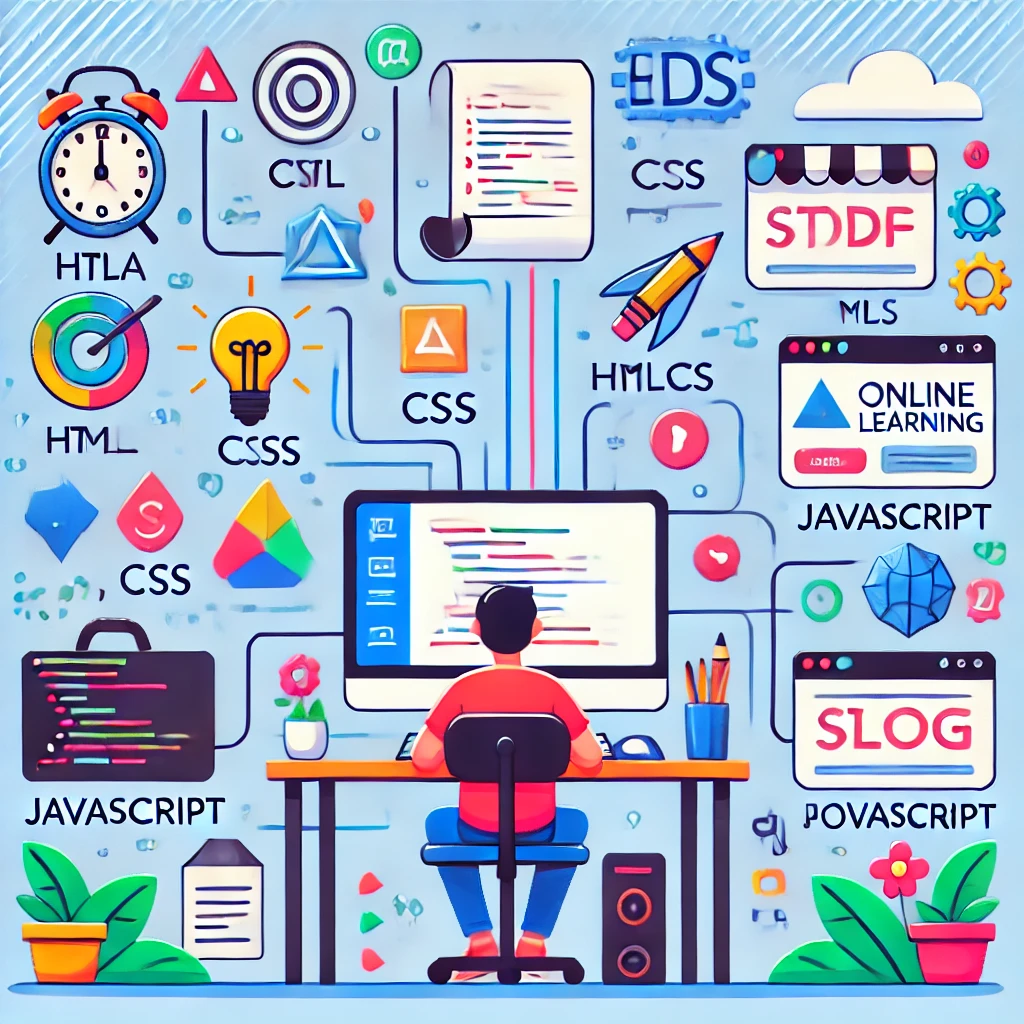Why Start a Career in Web Development?
With the digital world expanding, businesses across all industries are in constant need of talented web developers to create and maintain websites. A career in web development offers flexibility, creativity, and high earning potential, making it a great choice for individuals looking to start a rewarding career path.
- High Demand: Web developers are needed across various sectors, including tech, finance, education, and e-commerce.
- Flexible Career Options: Work as a freelancer, join a company, or even start your own business.
- Creative and Technical Skills: Web development combines creativity and logical thinking, offering a balance between design and functionality.
Steps to Start a Career in Web Development with No Experience
1. Understand the Basics of Web Development
Begin by understanding the core components of web development, which include:
- HTML: The backbone of any website, HTML is used to structure content.
- CSS: Responsible for the visual layout and design of websites.
- JavaScript: Adds interactivity and dynamic features to websites.
2. Choose Your Learning Resources
There are numerous free and paid resources available to help you learn web development, including:
- Online Courses: Websites like vasusoft offer beginner courses in HTML, CSS, and JavaScript.
- YouTube Channels: Channels like Traversy Media and Academind provide comprehensive tutorials.
- Books: Consider books like "HTML and CSS: Design and Build Websites" by Jon Duckett for a structured learning experience.
3. Practice by Building Projects
The best way to learn web development is by building projects. Start with simple projects such as:
- Personal Portfolio: Showcase your skills and projects to potential employers or clients.
- Simple Landing Pages: Create static pages to practice layout, design, and CSS.
- Interactive Forms: Use JavaScript to build forms with validation.
Platforms like GitHub allow you to share your code and keep track of your projects. This is a great way to build a portfolio and showcase your progress.
4. Learn Version Control (Git)
Version control is an essential skill in web development. Learn Git, a popular version control system, which will help you track changes to your projects and collaborate with others on platforms like GitHub.
5. Build a Portfolio and Start Applying
Once you have a few projects under your belt, it’s time to showcase your skills. Create an online portfolio or a personal website that features your best work. Use your portfolio to start applying for entry-level web development jobs or internships.
Consider applying to freelance platforms like Upwork or Fiverr to gain real-world experience and build a client base.
Step 3: Learn a Web Development Framework
After getting comfortable with HTML, CSS, and JavaScript, learning a web development framework is the next step. Frameworks can speed up your development process and help you build complex web applications.
Popular Front-end Frameworks:
- React: A JavaScript library created by Facebook for building user interfaces. React is widely used and has excellent community support.
- Vue.js: Known for its simplicity and flexibility, Vue is a beginner-friendly framework perfect for building modern web applications.
Popular Back-end Frameworks:
- Node.js: A runtime environment that allows you to use JavaScript for server-side programming.
- Codeigniter: A runtime environment that allows you to use PHP for server-side programming.
- Django: A Python-based framework that promotes rapid development and clean, pragmatic design.
Having knowledge of frameworks will increase your employability and help you build projects more efficiently.
Essential Skills for Beginner Web Developers
To succeed in web development, beginners should focus on mastering these essential skills:
- Problem-Solving: Ability to troubleshoot and solve issues as they arise during development.
- Responsive Design: Ensuring websites function well on mobile, tablet, and desktop screens.
- Basic SEO: Understanding of on-page SEO to optimize websites for search engines.
- JavaScript Libraries: Familiarize yourself with libraries like jQuery or frameworks like React to enhance your JavaScript skills.
Tools and Resources for Beginner Web Developers
Here are some useful tools to make your web development journey smoother:
- Text Editor: Start with a beginner-friendly code editor like Visual Studio Code.
- Browser DevTools: Use Chrome DevTools for debugging and improving site performance.
- Code Sandbox: Practice coding and experiment with projects in online coding environments like CodeSandbox.
Tips for Success in Web Development
Starting a career in web development takes patience and persistence. Here are some tips to keep in mind:
- Stay Consistent: Dedicate time each day or week to practicing and learning.
- Engage with the Community: Join forums, attend meetups, or participate in online communities to stay motivated and learn from others.
- Build a Growth Mindset: Embrace challenges as learning opportunities, and don’t be discouraged by initial setbacks.
Conclusion
Starting a career in web development without prior experience is achievable with the right approach and resources. By learning the basics, practicing consistently, building a portfolio, and developing essential skills, you can begin your journey toward a successful career in web development. Remember, the most important thing is to keep learning and never give up.


